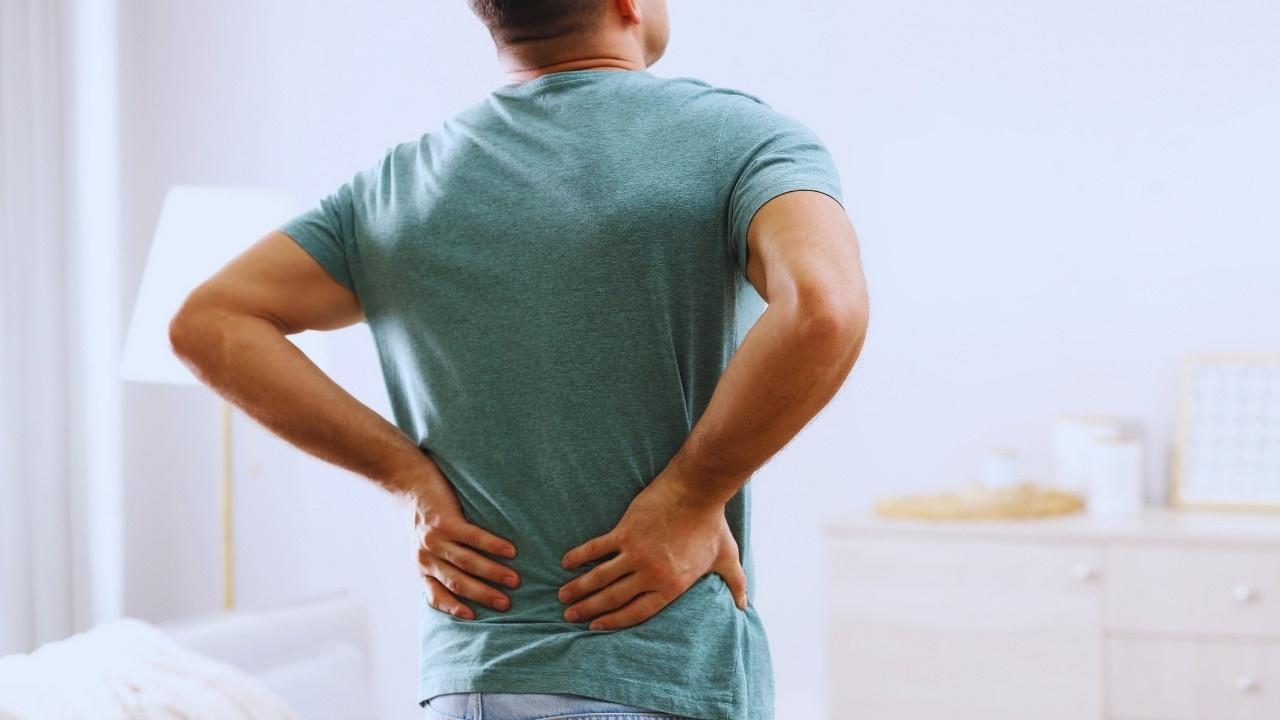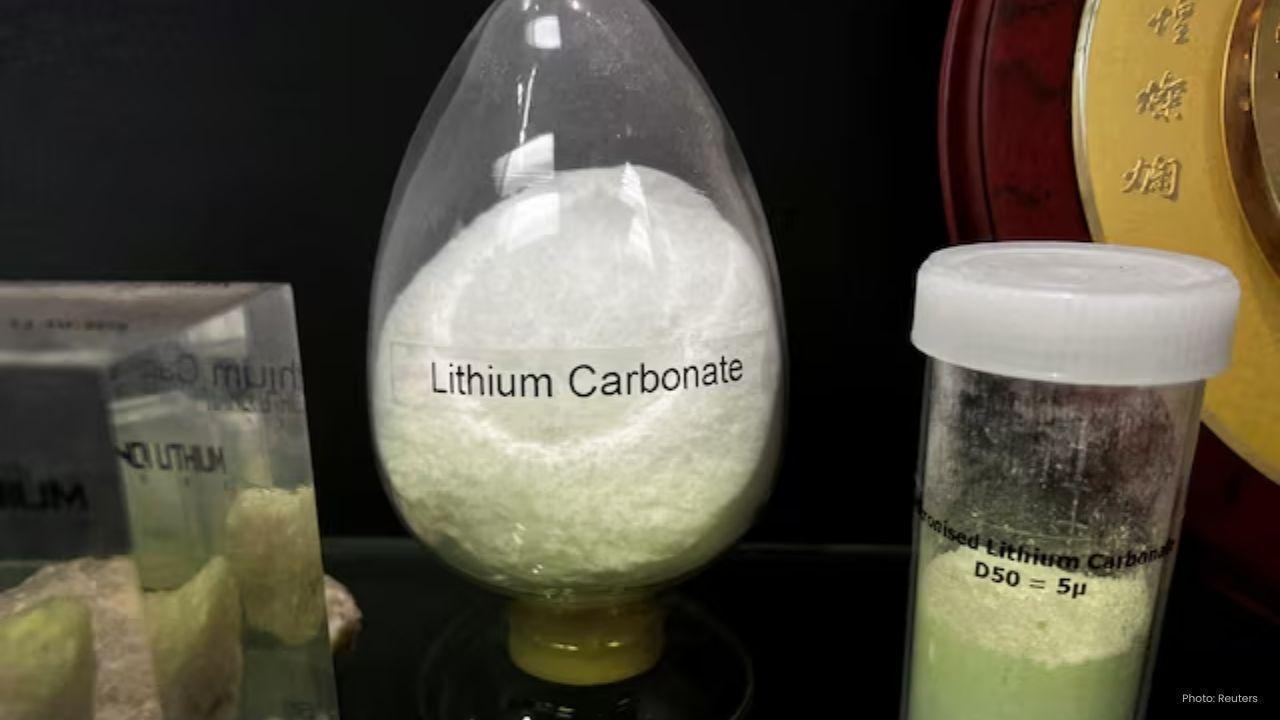
Post by : Anees Nasser
Chronic pain is not just a physical ailment; it impacts sleep quality, mood, mobility, productivity, and relationships. Unlike fleeting pain, chronic pain can fluctuate—it may persist, go dormant, or flare up due to stress, environmental changes, or unhealthy habits. Many endure this pain silently, believing it's something to simply live with.
However, chronic pain requires compassionate, ongoing care. While healthcare professionals play a vital role, integrating daily home routines can yield significant benefits. Minor modifications in movement, rest, posture, nutrition, and mental habits can gradually calm the body and diminish painful episodes' severity.
Managing pain is not about an instant solution—it centers on developing consistent practices that promote the body’s daily well-being, making pain a less dominant part of life.
The human body thrives on predictability. Regular schedules for waking, sleeping, eating, and resting help to mitigate inflammation and reduce stress responses. Irregular routines can exacerbate chronic conditions like fibromyalgia, arthritis, back pain, and neck stiffness.
• Arise around the same time every day
• Don’t skip meals
• Maintain steady sleep patterns
• Incorporate predictable movement
• Allow short breaks throughout the day
These habits help stabilize hormones, lessen stress, and regulate pain levels.
For many suffering from chronic pain, the idea of moving can be daunting. Yet, complete inactivity might lead to stiffness and worsen pain through reduced circulation and weakened muscles.
Movement remains one of the most powerful long-term strategies for managing chronic pain.
A low-impact activity that enhances blood flow, relieves muscle tension, and boosts mood.
Light stretches can alleviate stiffness and enhance flexibility, targeting areas like the neck, lower back, hips, and calves.
Gentle Yoga promotes strength, posture, and relaxation, making it suitable for those with chronic pain.
Warm water provides relief from joint stress, aiding those with arthritis or back pain.
Slow, focused movements strengthen key muscle groups that stabilize the spine.
Movement should always be gentle and patient. If you feel sharp pain, stop immediately; mild discomfort is normal as your muscles adjust.
Improper posture stresses muscles and joints continuously, leading to persistent discomfort in areas such as the back, neck, and hips. Many aren't aware of the strain that poor posture exerts on the spine during prolonged sitting.
• Keep your back straight and shoulders relaxed
• Feet flat on the floor
• Avoid excessive leaning forward
• Use a cushion for lower back support
• Set screens at eye level
• Shift sitting positions every 20-30 minutes
Small adjustments to posture can significantly reduce daily strain and lower chronic pain over time.
Temperature treatments can alleviate pain and enhance flexibility, with specific applications for different conditions.
• Tight muscles
• Chronic lower back pain
• Joint stiffness
• Tension from stress
Common heat sources include heating pads, warm compresses, and hot baths.
• Swelling and inflammation
• Acute injuries
• Post-activity pain
• Sudden flare-ups
Use ice packs, cold compresses, or chilled gel packs for effectiveness.
Heat relaxes muscles.
Cold decreases inflammation.
Alternating treatments can yield better results.
Pain can trigger shallow breathing, intensifying tension and discomfort. Engaging in deep, slow breaths prompts the body's relaxation response, alleviating muscle tightness.
Inhale for 4 seconds ➜ Hold for 4 ➜ Exhale for 4 ➜ Hold for 4
Place one hand on your belly ➜ Inhale deeply so your belly rises ➜ Exhale slowly
Inhale for 4 ➜ Hold for 7 ➜ Exhale for 8
These techniques require only a few minutes but significantly calm the nervous system.
Poor sleep can heighten chronic pain, and chronic pain can disrupt sleep. It's essential to develop habits that promote relaxation at night.
• Maintain a cool, dark bedroom
• Avoid devices an hour before sleep
• Use adequate pillows
• Create a calming bedtime routine
• Opt for light evening meals
• Limit caffeine intake to earlier in the day
Even small enhancements in sleep quality can gradually reduce pain intensity.
• Leafy greens
• Antioxidant-rich fruits
• Nuts and seeds
• Whole grains
• Olive oil
• Fatty fish
• Turmeric combined with black pepper
• Ginger
• Beans and lentils
• High sugar intake
• Deep-fried items
• Processed snacks
• Excess salt
• Sugary drinks
• Frequent fast food consumption
Adopting small, sustainable dietary changes is all that's necessary.
Dehydration can lead to muscle tension, headaches, and worsened joint pain. Many individuals with chronic pain inadvertently fail to consume sufficient water.
• Regular sips of water throughout the day
• Hydrating foods like fruits and vegetables
• Reduced caffeine if it worsens symptoms
Staying hydrated helps keep tissues supple and alleviates fatigue.
Chronic pain deeply influences mental well-being, yet mental health can also impact pain levels. High stress can amplify sensations of pain.
Mindfulness techniques can assist in breaking this vicious cycle, helping to ground oneself and alleviate stress.
• Guided meditation
• Conscious breathing exercises
• Gratitude journaling
• Slow-paced walks
• Calmly observing bodily sensations
You don’t need lengthy sessions; even 5 minutes can yield benefits.
Documenting your pain patterns can enhance understanding. Many discover insights by simply recording their experiences.
• Pain levels
• Daily activities
• Meals consumed
• Quality of sleep
• Current stress levels
• Weather influences
• Energy levels
Patterns will emerge over time, fostering improved prediction and management of triggers.
Weaker muscles exacerbate pain as joints bear an increased load. Gentle strength training can help to fortify areas around painful regions.
• Pelvic tilts
• Bridging exercises
• Cat-cow stretches
• Mild core workouts
• Straight leg raises
• Wall sits
• Seated leg lifts
• Resistance band training
• Chin tucks
• Shoulder blade squeezes
• Gentle neck movements
Begin gently; consistency is more beneficial than intensity.
Prolonged periods of sitting or standing can exacerbate discomfort.
Every 20 minutes, take a 20-second movement break.
Small pauses can:
• Enhance circulation
• Mitigate stiffness
• Prevent flare-ups
• Soothe nerve irritation
Setting reminders can be quite beneficial.
Your living space plays a vital role in how your body feels.
• Invest in supportive furniture
• Place essential items within easy reach
• Design your sleeping environment to support your spine
• Use soft lighting for a calming atmosphere
• Ensure frequently used items are on waist level
• Minimize clutter to cut down on unnecessary bending
You can create a supportive environment with minor adjustments.
Effective chronic pain management requires balance. Too much rest can lead to stiffness, whereas excessive activity can instigate flare-ups.
• Move when stiffness escalates
• Rest when pain spikes unexpectedly
• Incorporate breaks between tasks
• Balance demanding and lighter activities
This practice helps to prevent fatigue and keep symptoms in check.
Navigating chronic pain often requires time and patience. Progress manifests slowly: some days are easier, while others are more challenging. Remember, consistency is what matters most.
Remind yourself:
• Your efforts hold value
• Small changes lead to significant impacts
• Experiencing pain again isn’t a failure
• Healing isn’t always linear
Strength is cultivated through perseverance and steady self-care.
Chronic pain isn’t something that vanishes in an instant; however, consistent home routines enable the body to manage discomfort more effectively. Gentle activities, attention to posture, temperature therapies, mindful breathing, improved sleep, nutritional changes, and emotional balance collectively work to diminish pain and enhance daily living.
Self-care complements medical advice; it does not replace it. By adopting healthy habits, chronic pain can become less overwhelming, paving the way for a steadier, more hopeful life.
This article is meant solely for informational purposes and should not be construed as medical advice. Individuals facing chronic or worsening pain should seek guidance from qualified healthcare providers for tailored solutions.










Pageau's Overtime Goal Propels Islanders to 4-3 Victory Over Golden Knights
In a thrilling overtime finish, Jean-Gabriel Pageau leads the Islanders past the Golden Knights 4-3,

MLB Awards: deGrom and Acuna Jr. Shine as Comeback Players
Jacob deGrom and Ronald Acuna Jr. celebrated MLB Comeback Player Awards, alongside Ohtani and Judge

Portugal Confronts Ireland in Pivotal World Cup Qualifier
Portugal, led by Cristiano Ronaldo, faces Ireland in a vital Group F World Cup qualifier that could

Haaland's Brilliance Leads Norway to 4-1 Victory Against Estonia
Erling Haaland showcases leadership as Norway crushes Estonia 4-1, boosting their World Cup ambition

Hawks Triumph Over Jazz; Suns and Raptors Secure Victories
Hawks' Onyeka Okongwu and Jalen Johnson lead in a thrilling win against Jazz; Suns and Raptors also

Indian Men's Recurve Team Clinches First Asian Gold in Nearly Two Decades
The Indian men's recurve team triumphed over South Korea, securing their first Asian gold in 18 year